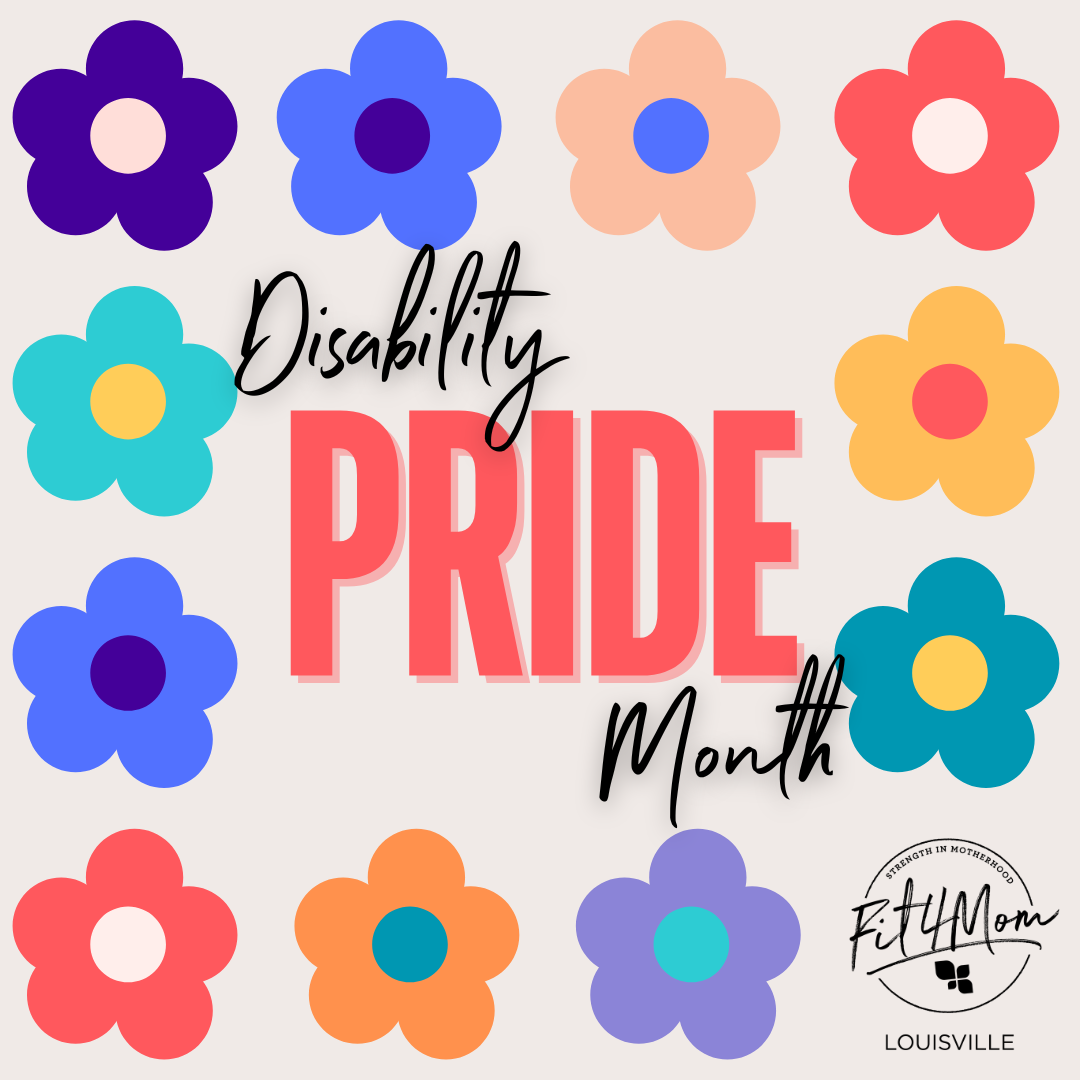July was chosen as Disability Pride Month because on July 26th, 1990 the Americans With Disabilities act was signed. The theme this year is "We Want a Life Like Yours." The theme honors the way individuals with disabilities can thrive when given the access and opportunity to do so. According to the American Bar Association, "Disability Pride Month celebrates disabled persons embracing their disabilities as integral parts of who they are, reclaiming visibility in public and interacting fully with their disabilities out in the open, and rejecting shame and internalized ableism. It is a time for the disability community to come together, uplift, and amplify one another’s voices and be heard." We honor those in our Village who either personally have or have a personal connection to someone who has a disability and wanted one of them to give a personal reflection on it. Read below a story from one of our own in Fit4Mom Louisville.
To put it bluntly, I really struggled as a child. I was strong willed, emotional, and dramatic. I was smart, but I did terrible in school. I was explosive at times. But mostly, I was extremely impulsive, which resulted in me making some pretty bad decisions. My parents raised me well and taught me right from wrong, but I still made terrible, impulsive decisions. I honestly just thought I was a “bad kid."
My parents did all the right things. They took me to a therapist, who referred me to a psychiatrist for an evaluation. I was given a diagnosis, but unfortunately, what we didn’t know then was that I was misdiagnosed. Somehow I knew in my heart that the diagnosis was incorrect, but who was I to question a psychiatrist?
It wasn’t until college that I finally got an accurate diagnosis. I have ADHD. The thought of that had never crossed my mind. I thought that ADHD meant you were always bouncing off the walls, and that was not me at all. However, I was trying to keep an open mind and when it was recommended that I try ADHD medication, I reluctantly agreed. At the time, I had been put on academic probation at UK, and my dad had threatened to make me move home if I didn’t get my grades up. I figured medication couldn’t hurt so why not give it a try.
I have to say, it was a total game changer. I could concentrate on schoolwork without getting distracted every 4 seconds. My mind didn’t race as much as it used to, which allowed me to think more rationally and not be so impulsive. I wasn’t so explosive and reactive. I was so thankful to have something that made me feel like I wasn’t constantly fighting an uphill battle all the time. I couldn’t help but think that if I would’ve been properly diagnosed the first time, my life would’ve been so much better.
Since I wasn’t diagnosed until later in life, I unconsciously kind of blocked out a lot of my childhood/teenage struggles. I also didn’t really research ADHD very much after my diagnosis. I guess that’s why when my own son was having difficulties, it wasn’t on my radar that he might have ADHD too. But sure enough, he was diagnosed with ADHD as well – at only age 4. It was at that point that I started really started doing my research. My intent was to learn more about my son, but I also learned more about myself!
It was also then that I realized that how misunderstood ADHD actually is. People think that it is having trouble concentrating and/or being super hyper all the time, but it is SO much more than that. I also think that the impact it has on people’s lives is extremely minimized. Those of us with ADHD have brains that are wired differently, and I am committed to raising awareness.
Believe it or not, I am thankful that I have this disability. First and foremost, I can relate to my son. ADHD can be extremely lonely at times. As a kid, I would have given anything to have someone who could actually understand what I was going through. I feel blessed that I can validate him and advocate for him in a way that a neurotypical person cannot. I also believe that my experience is beneficial in my job as a high school counselor. It is extremely important for me that my students understand that their disability (whether it is ADHD or something else) is part of their story, but it is not their entire story.

